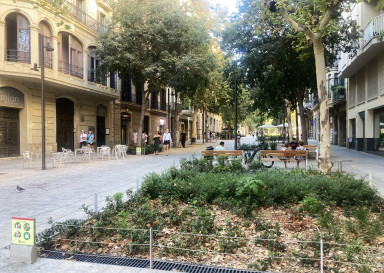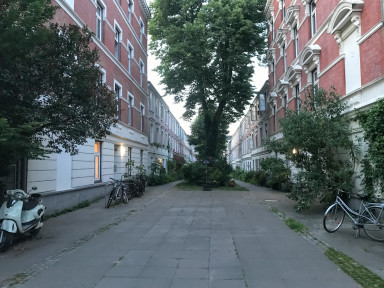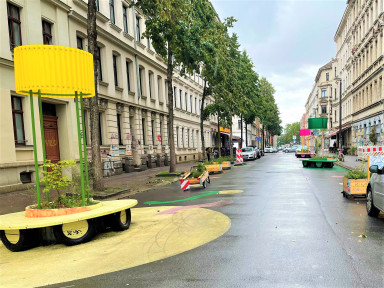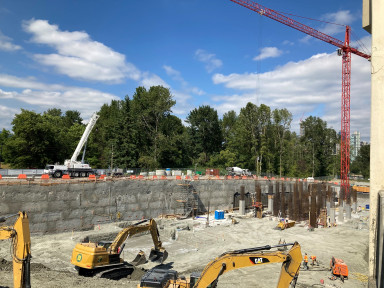At the interface between niches and regimes
Unpacking discourses, practices, and relations of upscaling processes of nature-based solutions
This research investigates the upscaling processes of experiments involving nature in cities as a response to the current challenges of climate change. Upscaling of experiments is the main focus of transition research. The research underway proposes to examine intermediaries as key figures involved in the upscaling processes of experiments. It draws upon sociological network research and discourse analysis by looking at three analytical dimensions – political discourses, upscaling practices, and actors’ relations – arguing for their interdependency. Recent Horizon2020-funded projects in the European context are considered as case studies, where nature-based solutions are presented as a key tool for combating climate change.
- urban climate governance
- nature-based solutions
- argumentative discourse analysis
- practice-based approaches
- social network analysis
- discourse network analysis
Context
Nature and urban development have conventionally been seen as competing forces in cities. Understandings of nature entail strong cultural dimensions, which are contextually and temporally specific. Different urban actors have distinct interests and claims regarding the legitimacy of actions aiming to shape urban futures. Urban experiments are claimed to be spaces to design, test, and implement new solutions by allowing dialogue among different urban actors. Based on innovation studies, transition research looks at experiments as the means to upscale niche innovations into becoming part of regimes. Upscaling processes are seen by transition researchers as fundamental to trigger structural changes in current societal systems. Intermediaries1 are claimed to be important actors at the interface between the niche and regime levels. The lack of understanding of actors’ agency in the upscaling processes of experiments makes the investigation of such processes with the tools of transition research challenging.2 Given this limitation, the proposed research deploys tools from the more established discussions around sociological network research and discourse analysis.
Aims
The research aims to investigate upscaling processes of experiments that involve nature in cities by analysing political discourses, practices, and relevant actors’ relations (Figure 1). It is argued that these three dimensions are interdependent. The research question is: How are discourses, practices, and relations interdependent in the upscaling processes of urban experiments involving nature? The aim of the discourse dimension is to determine path dependencies by ‘framing’ the problem, the solution, and the path towards that solution. It identifies ideologies and collective cultural beliefs that underlie behaviours of the different actors involved in the upscaling process. Hence, discourses shape practices of upscaling. Practices are interpreted here as communication events: moments of dialogue within which collective behaviours and values are confronted and reconstructed. The aim of practices is to analyse how the (re)negotiation of cultural values and symbols and the rewiring of the network of actors occur within the upscaling process. The relations dimension aims to investigate the connections between actors in the networks of these experiments. The main focus of that analysis is on the intermediaries and their assertedly central role in the upscaling process.
Research design
Based on the relational turn in sociology, sociological network research asserts the need to merge quantitative and qualitative methods to account for meanings, agency, and structures.3 The research proposes using discourse network analysis (DNA) as a tool to connect discourses and actors and to examine how these connections coevolve.4 DNA identifies discourse coalitions, defined as groups of actors sharing the same perspectives on specific concepts. DNA allows the construction of different graphs showing arrays of pairing between actors, concepts, and agreement or disagreement patterns. It depicts the evolution of the discourse coalitions by identifying these pairings in defined points in time. The interactions between discourse coalitions in the upscaling process are conceptualized as communicative events. Interaction may lead to the rewiring of the networks through the exchange of information and realignment of cultural values. Additionally, new meanings can be created out of the rewiring. The relations among actors are analysed with a focus on intermediaries: These are conceptualized, according to sociological network research, in the tertius (or broker) position, which represents actors that connect with two other actors in a triadic relation. The bridging function of the tertius is argued to be important for the development of innovative ideas, as actors sharing different values, knowledge, and resources are connected. The object of study is urban experiments that work with nature in cities. The research looks at the recent European innovation policy that promotes the prompt upscaling of nature-based solutions (NbS). Discourses on the upscaling of NbS are analysed in EU policies, laws, and regulations. Further analysis is given to practices and relations in the upscaling processes within Horizon2020-funded projects on NbS, identifying influences from discourses at the European level. Information sources include project deliverables, websites, event descriptions, and interviews.
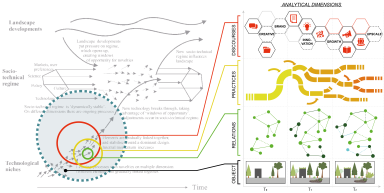
Supervisors:
